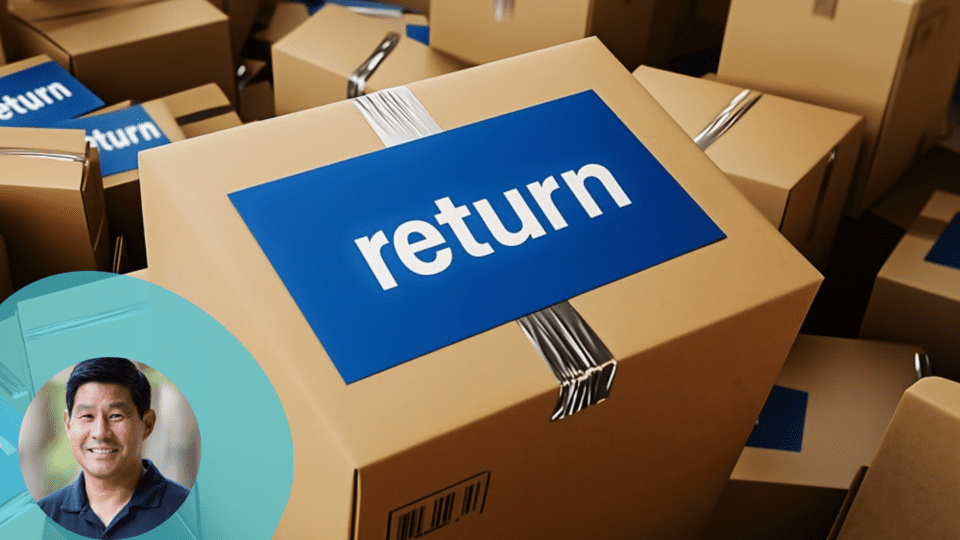The holiday season is upon us and will mark a huge boost in revenue for most retailers. Though Thanksgiving week is when the bulk of holiday shopping is done (read: Grey Thursday, Black Friday, Small Business Saturday, Cyber Monday), this year consumers started shopping earlier than ever, solidifying that Christmas creep is alive and well.
Meanwhile, retailers and industry insiders are debating the following:
- Do people still stand in line for Black Friday deals?
- Will m-commerce (mobile) purchases break records this holiday season?
- Will high demand for Stanley Tumblers cause chaos again this year?
And by the way, the last one is not a joke! The point is, this season is going to be an interesting one.
But on the heels of the biggest shopping season of the year comes a barrage of returned merchandise that will end up sitting idle in warehouses and cut significantly into the bottom line (without a proper resale strategy in place, that is). This year an estimated 18% of sales – or around $170 billion worth of merchandise – once purchased/gifted/unwrapped will be returned. Though much of it will be in functionally and cosmetically perfect condition, putting it back on store shelves is logistically inefficient. Plus, packing up and storing seasonal items for a year compromises space in an already packed warehouse.
This is where an online B2B resale platform — one that is backed by technology and data and offers multiple channels to sell inventory — can help solve the post-holiday returns pile-up. Some of today’s biggest retailers and brands are leveraging a B2B resale platform to act as a centralized hub for all their secondary market resale needs. By moving everything onto a single online platform, these companies have a single system of record and are able to tackle what’s historically been a fragmented and extremely manual process. They are also able to:
Achieve Confidence in Pricing
Whether selling to a single buyer or to a broader buyer base, it’s important to understand the fair market value of the merchandise and what variables (condition, inventory type, sales channel) will impact pricing. A B2B resale platform that holds years of pricing data against multiple variables ensures a more accurate picture when it comes to pricing. Be sure to look for one that offers a variety of ways to sell the inventory into the secondary market (this might be via an open marketplace or through a private transaction), and can provide pricing comparisons across each channel.
Reach the Best Buyers
There is a robust secondary market and buyer base for returned merchandise across all categories and conditions. The best B2B resale platforms will have a database of thousands of business buyers — including online resellers, bin store owners, off-price stores, exporters and refurbishers — ensuring consistent demand and ultimately, pricing. They can also easily onboard any existing buyers or do targeted marketing to a particular type of buyer.
Move Inventory Quickly and at Scale
A B2B resale platform that offers multiple channels to move out returned and excess inventory allows for scalability: it can handle a substantial uptick in merchandise, post-holiday (and all year long), without sacrificing velocity.
Ensure Brand Control
Channel control is important, especially for sensitive brands. Through an online B2B resale platform you can choose how your inventory is remarketed and who it is sold to. This helps avoid sales channel conflict and maintain your brand’s image by creating specific, binding restrictions that apply to all buyers.
These restrictions might include:
- Excluding resale on third-party marketplaces
- Establishing geographical limitations
- Selling only to exporters
- Selling only to off-price retailers
- Requiring brick-and-mortar sales exclusively
- Mandating all items be de-labeled prior to resale
Automate the Sales Process and Track Performance
An established and technology-based B2B resale platform can handle the process end-to-end, including listing recommendations and setup; in-platform payment; automatic invoicing; and pre-set launch times for listings.
It can also provide detailed records to keep track of performance, which is critical for things like accurate bookkeeping; tax reporting; compliance; and ensuring buyers have met resale requirements.
Apply Data to Drive Results
Finally, applying data to achieve your goals (be it recovery, velocity, brand control, etc.) can make a big difference. The smallest adjustments can drive substantially better results. For example, lot optimization, accurate manifests, targeted marketing, choosing a specific resale channel and other strategies all contribute to better results. This is where working with a company that has years of compiled B2B resale data can be a game changer.
For example, there are many factors that impact pricing when it comes to selling bulk quantities of inventory into the secondary market. Here is what the data shows us:
- The top five variables impacting pricing include: product category; brand; condition; manifest design; SKU depth
- Pricing differs by category and sub-category
- Pricing significantly differs between subcategories. For example, in looking at the subcategories that fall under the Apparel and Accessories category, handbags, which, when separated out, typically achieve higher pricing than apparel
- Different categories benefit from a deep SKU vs shallow SKU. Ex: outdoor furniture fetches higher pricing in a shallow SKU listing.
- Lots that have inventory that is similar in original MSRP price will get higher pricing
Let’s face it, holiday returns are inevitable: consumers are fickle and expect retailers to happily accept the purchases and gifts they bring/send back (doesn’t even matter if it came from Grandma!). By looking to an online B2B resale platform to remarket your returns and clear out warehouse space quickly, you’ll find that December 26 and beyond isn’t such a headache after all.
Marcus Shen is the CEO of B-Stock, a large B2B resale platform connecting sellers and buyers of returned and excess inventory through a suite of online resale channels.




